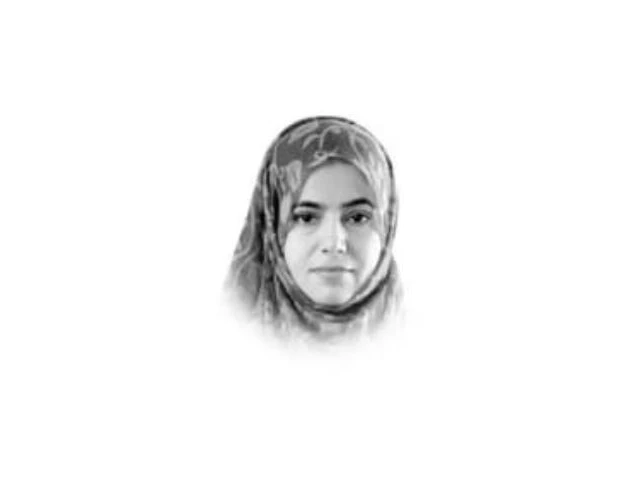Forgotten heroes of the partition
Life during the post-partition period was uncertain and fraught with danger

Independence was truly understood by those who paid the cost of freedom and lost their closest family members. They knew that liberty demands sacrifice, and the value of being free is best known to those who shed their blood for their homeland. The story of how Pakistan came into being in 1947 is remembered most vividly by those who lived through those difficult times.
The trauma of the partition lives on in the childhood memories of Dr Khawaja Ahmed Abbas, a living legend, an eyewitness and a migrant of 1947. In his book titled Living in Clouds, he recounts the anguish of those times and the hardships witnessed during the post-partition period.
The partition displaced 12 to 20 million people, forcing them to leave ancestral lands where they had lived for generations. This migration left deep scars and painful memories tied forever to the soil of their origins.
"A beam of morning sunlight coming through a small hole in a broken window was shining on my face. I woke up startled and was surprised to find myself in a lll-class compartment of a passenger train. 'What is this place?' I murmured to myself, still sleepy. 'Where are we? Why are we not in our house?' The compartment was crowded with a lot of other people. I shouted for my mother: 'Amma! Amma!' It took a few moments to realize where I was. 'Don't worry, Baacho. We are going to Pakistan. We have been asked to board this train, which is going to take us there. It's going to be a few days' journey.' People in the compartment were still asleep or trying to wake up - perhaps the time was too hectic. There were six families of ours, a total of 30 people. But our father was not in this crowd, and we had no idea about his whereabouts, or indeed if he was alive or dead!
"Leaving home was traumatic, almost like a rupture. Sadness was writ large on every face. Yet, there was some satisfaction that our lives were going to be safe after this journey. But questions still remained: What was our final destination going to be? What kind of place would that be? Nobody knew..."
Young Muslim girls were instructed to kill themselves by jumping into a well if Hindus attacked. Life during the post-partition period was uncertain and fraught with danger.
These were the difficult days witnessed during the partition by Dr KA Abbas, who was born in Sonepat and spent his early childhood there until the age of 10. Those were the days when British rule had just ended, and India and Pakistan emerged on the map on the 14th and 15th of August, respectively. Muslims were to depart for Pakistan and Hindus for India.
Abbas's journey began at the age of 10, following the painful migration, and he reached Pakistan after a couple of days.
However, the partition was painful, and I think of all those who were part of that "train to Pakistan". They might have carried similar memories of the life they left behind in India, such as attending school, offering prayers in mosques or worshipping in mandirs, and playing in the streets that must still echo with their soft voices and laughter.
The tragic reality of mass destruction, mass murder and inhumane treatment suffered by those migrants cannot be forgotten. More than one million people were killed during this migration, and many others, including women, men and children, were injured. It was not a comfortable journey but a cramped and desperate one, undertaken out of compulsion to relocate to the other part of the subcontinent.
We have a solemn duty to honour the migrants of 1947. Both the living and the departed deserve state-level recognition as a source of national pride. They left behind all their belongings, sacrificed their lives and helped make this nation free and peaceful. They were the ones who truly knew the cost of freedom and independence.















COMMENTS
Comments are moderated and generally will be posted if they are on-topic and not abusive.
For more information, please see our Comments FAQ